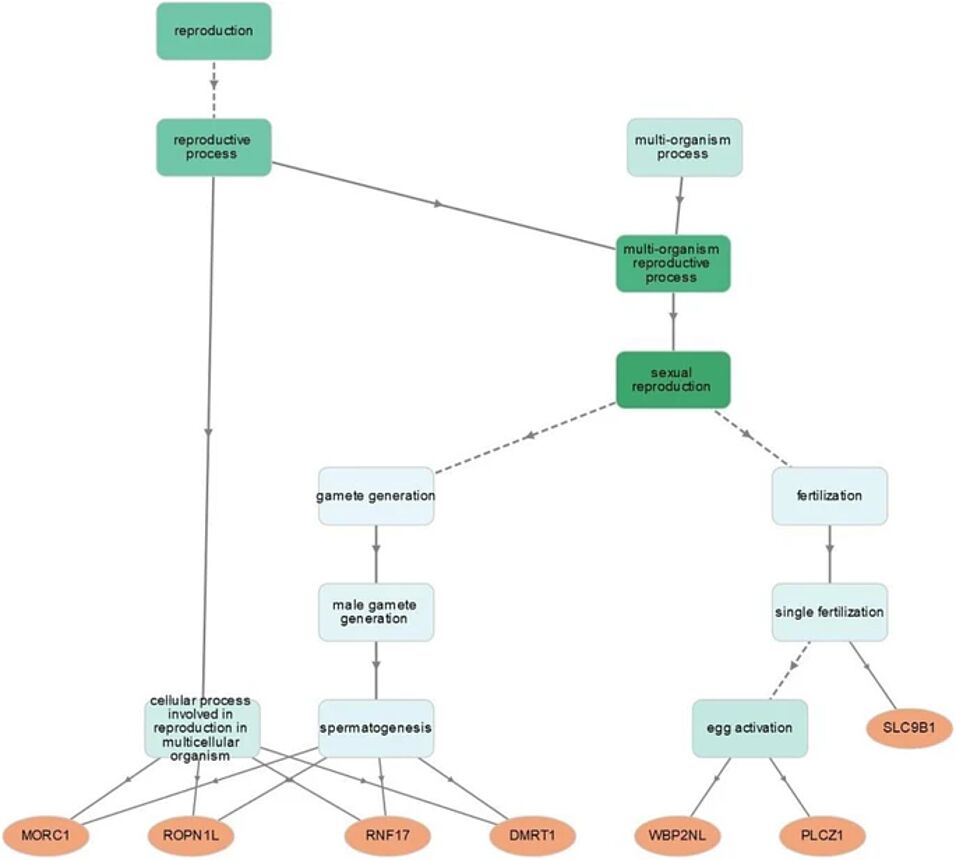Abstract
Background
Recent human transcriptomic analyses revealed a very large number of testis-enriched genes, many of which are involved in spermatogenesis. This comprehensive transcriptomic data lead us to the question whether positive selection was a decisive force influencing the evolution and variability of testis-enriched genes in humans. We used two methodological approaches to detect different levels of positive selection, namely episodic positive diversifying selection (i.e., past selection) in the human lineage within primate phylogeny, potentially driven by sperm competition, and recent positive directional selection in contemporary human populations, which would indicate adaptation to different environments.
Results
In the human lineage (after correction for multiple testing) we found that only the gene TULP2, for which no functional data are yet available, is subject to episodic positive diversifying selection. Using less stringent statistical criteria (uncorrected p-values), also the gene SPATA16, which has a pivotal role in male fertility and for which episodes of adaptive evolution have been suggested, also displays a putative signal of diversifying selection in the human branch. At the same time, we found evidence for recent positive directional selection acting on several human testis-enriched genes (MORC1, SLC9B1, ROPN1L, DMRT1, PLCZ1, RNF17, FAM71D and WBP2NL) that play important roles in human spermatogenesis and fertilization. Most of these genes are population-specifically under positive selection.
Conclusion
Episodic diversifying selection, possibly driven by sperm competition, was not an important force driving the evolution of testis-enriched genes in the human lineage. Population-specific, recent positive directional selection suggests an adaptation of male reproductive genes to different environmental conditions. Positive selection acts on eQTLS and sQTLs, indicating selective effects on important gene regulatory functions. In particular, the transcriptional diversity regulated by sQTLs in testis-enriched genes may be important for spermatocytes to respond to environmental and physiological stress.
Schaschl, H., & Wallner, B. (2020). Population-specific, recent positive directional selection suggests adaptation of human male reproductive genes to different environmental conditions. BMC Evolutionary Biology, 20(1), [27]. https://doi.org/10.1186/s12862-019-1575-0

